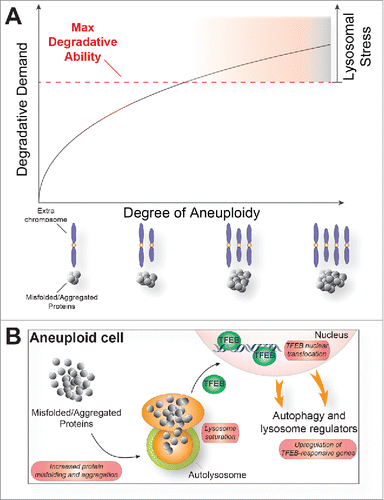Figures & data
Figure 1. A model as to how proteotoxic load induces a lysosomal stress response. An increasing load of misfolded and/or aggregated proteins brought about by aneuploidy causes lysosome-mediated protein degradation to become limiting (A). This in turn triggers a lysosomal stress response, which lead to translocation of the transcription factor TFEB from the cytoplasm into the nucleus where it stimulates the transcription of genes involved in autophagic degradation (B).

